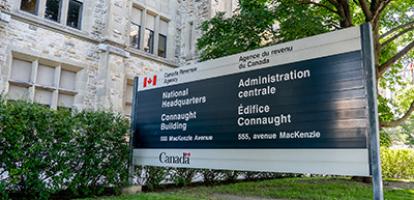From: Bryan Thomas, Colleen M. Flood, Vivek Krishnamurthy, Ryan Tanner and Kumanan Wilson
To: Canadians Concerned about Vaccine Passports
Date: July 29, 2021
Re: Are Vaccine Passports Discriminatory?
Our new C.D. Howe Institute Working Paper explores the legal dimensions of vaccine passports under the Charter of Rights and Freedoms, the privacy implications of such a system and other facets.
As part of that discussion we examined the very idea that vaccine passports are discriminatory, in the sense of wrongful discrimination that Section 15 of the Charter aims to prevent; i.e., treating members of enumerated and analogous groups as less deserving of respect and consideration.
The problem here is that – far from being motivated by a sense of anyone’s lesser value – vaccine passports have been proposed precisely as a means of protecting those who cannot or will not be vaccinated.
Vaccine passports are not proposed primarily as a means of protecting the vaccinated population, who after all face little risk of serious illness; they are proposed as a means of controlling the risk to unvaccinated people. What matters to a s.15 analysis is not the public optics of vaccine passports, but their true policy rationales and anticipated real world effects.
There is no plausible sense in which vaccine passports can be described as excluding people on the basis of stereotypes or discounting the interests of enumerated or analogous groups.
On the contrary, this is a science-based policy, aimed ultimately at protecting unvaccinated populations.
Some have worried that members of vulnerable or marginalized groups will be disadvantaged by vaccine passports through denial or limitations on entry to venues “gated” by the passports. However, this is not a disadvantage conferred by vaccine passports per se; it is conferred by public health lockdowns, which will be required in the event of a fourth wave. Vaccine passports merely allow us to target restrictions on indoor gathering on the at-risk segments of the population – the unvaccinated. The unvaccinated are not made any worse off by this shift from universal to targeted restrictions. The suggestion that vaccine passports are unethical and should be eschewed in favour of continued lockdowns and other mitigation strategies speaks to a perverse ‘levelling down’ conception of equality that has no basis in s.15 jurisprudence. (And the burdens of continued lockdowns will be borne disproportionately by the vulnerable and marginalized, which means this approach is hard to justify even under an equity lens.)
From the government’s standpoint the most immediate question is whether and how vaccine passports will gate access to public services, including access to things like hospitals, universities, public schools, driver licensing tests, and so on. The Canadian Council of Parliamentary Ombudsman recently published a guidance document, setting out fairness principles for the use of vaccine passports in the public sector, which appear entirely sensible.
One remaining question is whether the government action of issuing vaccine passports in the first place might be challenged, under s.15, as laying the groundwork for potential private sector discrimination.
At issue here is whether governments have some obligation, flowing from s.15, to contemplate how vaccine passports might be used (or misused) by private actors. It is certainly the case that a provincial government could proactively regulate how vaccine passports are used in broader society. Regulations about the use of health cards could be a model.
By the same token, if a government opted not to regulate in this way, it is unlikely that misuse of vaccine passports by private actors could ground a viable s.15 challenge. Consider, by analogy, that governments issue driver’s licences, which are then used for myriad purposes in the private sector, some of which engage s.15 interests (e.g., the requirement by most car rental companies that drivers must be over the age of 25).
To be clear, the intended takeaway here is not that governments should avoid issuing vaccine passports in the first place for fear of unleashing private sector abuses. That is a futile message, given the near inevitability of vaccine passports for international travel and that the fact of vaccination is information belonging to an individual which he or she may disclose at will. The path forward for those concerned about potential discrimination is to engage with the more nuanced question of how passports should be designed (to ensure privacy and data security) and rolled out in the context of Canadian federalism.
Bryan Thomas is Senior Research Associate & Adjunct Professor, Centre For Health Law, Policy & Ethics, University of Ottawa, where Colleen M. Flood is Research Chair in Health Law and Policy, and Vivek Krishnamurthy is Samuelson-Glushko Professor of Law. Ryan Tanner teaches at the Faculty of Law, and Kumanan Wilson is Senior Scientist, Clinical Epidemiology Program, Ottawa Hospital Research Institute and Professor, Faculty of Medicine, at the University of Ottawa.
To send a comment or leave feedback, email us at blog@cdhowe.org.
The views expressed here are those of the authors. The C.D. Howe Institute does not take corporate positions on policy matters.





